Just weeks after commissioning the world’s first refinery to convert ethanol to sustainable aviation fuel, US-based SAF producer LanzaJet and Jet Zero Australia, an emerging biofuels company, have announced a licence and engineering agreement to develop a similar plant in Australia, supported by Qantas, Airbus and the Queensland state government. Subject to a final investment decision, the proposed plant will be built near the coastal city of Townsville, in tropical northeast Queensland, and will use LanzaJet’s alcohol-to-jet technology to convert bioethanol into SAF. Designated as Project Ulysses, after a butterfly species found in the region, the facility will have capacity to produce up to 102 million litres of SAF per year by transforming agricultural waste, including sugar cane, from the region’s farms. Jet Zero’s CEO, Ed Mason, said the partners were targeting late 2026 to early 2027 to commence SAF production.
Qantas has long lobbied Australia’s federal and state governments to support the development of a local SAF industry, not just for environmental reasons but also to help ensure national fuel security and create new employment. It has also urged the national government to develop policy settings to enable SAF to be produced locally and has called for the introduction of blending mandates to help drive up demand as well as bring down prices.
The agreement between Jet Zero and LanzaJet followed a feasibility study in which the Queensland government invested A$760,000 ($491,000) as part of a strategy to attract SAF production to the state and to use local biomass waste for fuel feedstocks. Currently, large volumes of Australian fuel feedstocks flow out of the country to other markets for use in their SAF production programmes.
“North Queensland is in a unique position to provide feedstock for this project, while also being close to the industry partners that are already investing in our state,” said Steven Miles, the Premier of Queensland, who also identified jobs in facility construction, SAF production and the agriculture, aviation, defence and tourism sectors.
His Minister for State Development and Infrastructure, Grace Grace, also flagged export opportunities through the project, which she said would help Queensland to become the leader of a domestic SAF industry.
Although the federal government is not a partner in Project Ulysses, it is aiming by 2030 to reduce national carbon emissions by 43% compared to 2005, progressing to net zero emissions by 2050. Reducing flight emissions for civil aircraft and potentially also military craft will be a key focus of the government’s new Aviation White Paper, a broad-based strategy document which will be released this year to guide the industry’s development until 2050.
Jet Zero’s Ed Mason welcomed the LanzaJet agreement, which he said would enable the project to progress towards a final investment decision, while strengthening the partnership not just with the US producer, but also with Qantas and Airbus.
“We believe in building industry, protecting our climate and enabling energy and national security, and our work in Australia delivers that ambition,” added LanzaJet’s CEO, Jimmy Samartzis. “Doing leading edge work requires partnership, and we’re proud to join Jet Zero Australia, the Queensland government, Airbus and Qantas to position Australia as a leader in the region on sustainable aviation fuels, with direct impact in significantly reducing greenhouse gas emissions, enabling job creation and preserving Australia’s environment for generations to come.”
Qantas Group Chief Sustainability Officer Andrew Parker said SAF was “the most significant tool airlines have to reduce their emissions, but it’s only available offshore with no local supply for airlines in Australia.” Australia’s largest airline group, he added, “is investing in technology like this Queensland biofuel refinery to help kickstart a local SAF industry so flights around Australia can be powered to produce lower emissions.”
The airline regularly uplifts SAF in London and has committed to other offtake deals including in the US through a joint purchasing deal brokered by the oneworld airline alliance, of which it is a member. As well, it has just started a major programme to upgrade its narrow and widebody fleets with new Airbus and Boeing jets and commenced retrofitting split scimitar winglets to 23 of its B737-800 jets to improve their fuel efficiency while reducing carbon and other emissions.
“Australia lacks production of sustainable aviation fuel,” added Stephen Forshaw, Airbus Chief Representative, Australia, New Zealand and Pacific. “The challenge to start production is urgent. If we don’t move soon, the opportunity to build a new fuels industry locally will disappear.
“However, we think Australia has every chance of becoming a sustainable fuels superpower, with the right support from government and industry. This is why we’re so supportive of Jet Zero’s mission to become Australia’s first home-grown producer of SAF, and equally of their partnership with LanzaJet that will enable production here.”
Photo: Qantas


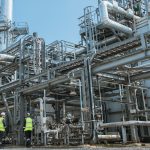
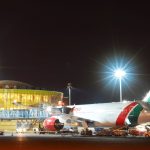
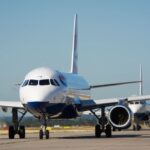
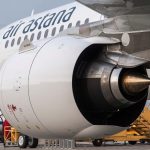

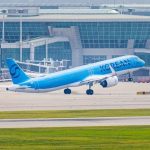



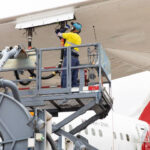



More News & Features
UK government starts new consultation on SAF revenue certainty mechanism
African Development Bank and Japanese industrialist unite to explore SAF production in Africa
LanzaJet and KMG agree to progress SAF production project in Kazakhstan
SkyNRG says e-SAF and carbon removals should not be competing strategies for aviation decarbonisation
South Korea announces mandatory SAF blending for departing international flights from 2027
Catagen launches SAF production company and signs offtakes with Ryanair and Shell